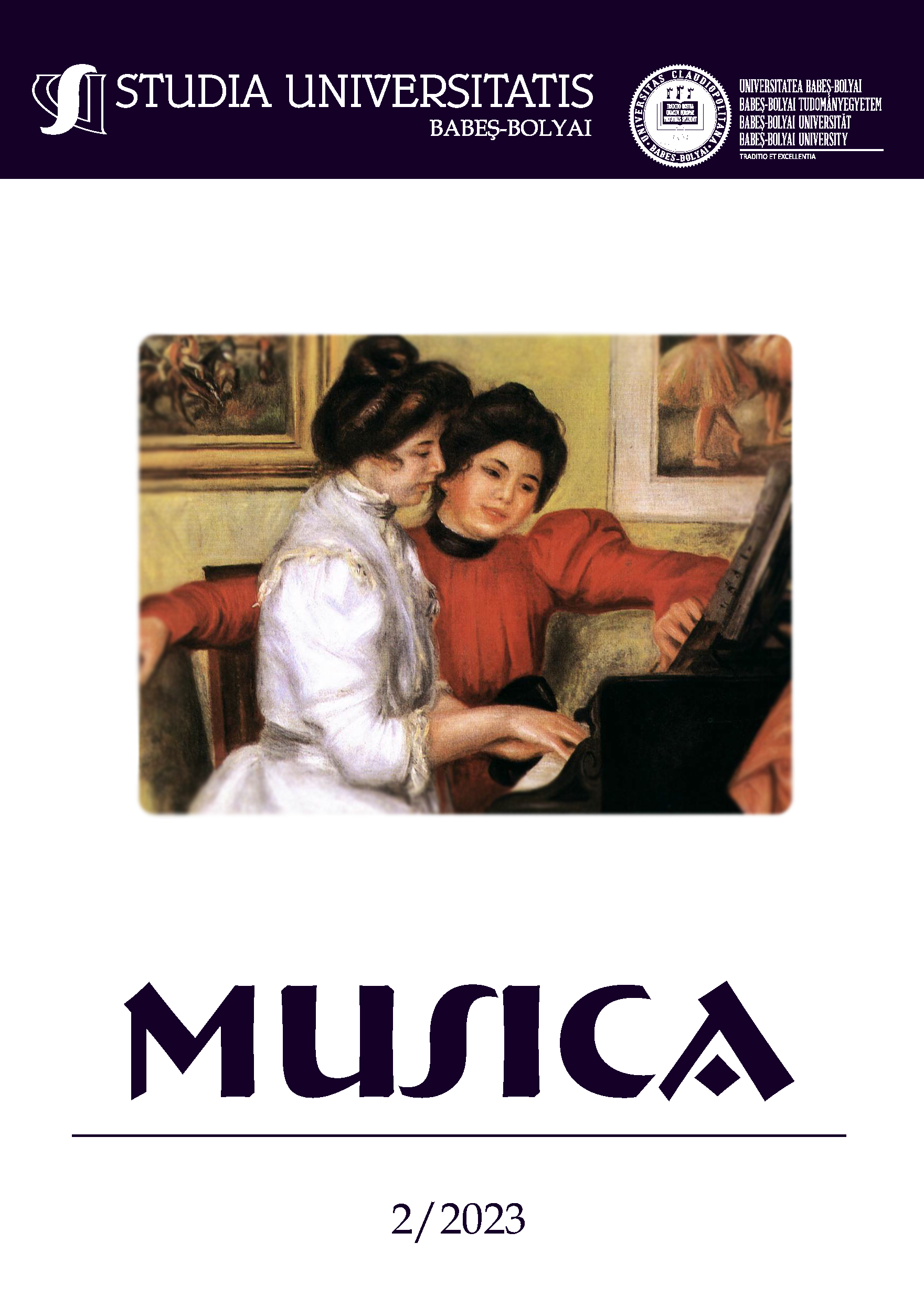Vocal Pedagogy - Reflections on How to Teach Proper Speaking and Singing to Students
DOI:
https://doi.org/10.24193/subbmusica.2023.2.15Keywords:
human voice, pedagogy, technical breathing, professional speech, singing, vocal coach, anatomy.Abstract
The present study intends to dive into the world of technically appropriate human sound production. Whether it’s used in professional speech or singing, understanding the different elements that aid in the correct creation and emission of sound are prerequisites for all who intend to pursue a career that requires speaking or singing for an extended period of time. From the characteristics of sound, to the anatomy of how sound is created, what does technical breathing mean but also what a voice trainer needs to pay attention to in terms of anatomy but also psychology when working with students, the following article presents the steps and methods a vocal coach needs to take into account when taking on a new student.References
Adorján, Ilona. Hangképzés, énektanítás. Feljegyzések hatvan év pedagógiai munkássága során (Voice training, voice teaching. Notes on sixty years of pedagogical work). Eötvös József Könyvkiadó, Budapest, 1996.
Altorjay, Tamás. Klasszikus énekesi hangképzés empirikus kutatása, az orr és melléküregei bekapcsolhatóságának vizsgálatára (Empirical research on classical vocal training on the engagement of the nose and the paranasal sinuses). PhD thesis, Szeged, 2018.
Fischer, Sándor. Retorika. A közéleti beszéd gyakorlata (Rhetoric. The Practice of Public Speaking). Kossuth Könyvkiadó, 1981.
Fischer, Sándor. A beszéd művészete (The Art of Speech). Gondolat, Budapest, 1966.
Fodor, Géza. Zene és színház (Music and Theatre). Argumentum Kiadó, 1998.
Jelinek, Gábor. Út a természetes énekléshez. A hangképzés módszertana (The Path to Natural Singing. The Methodology of Voice Training). Akkord Kiadó, Budapest, 1991.
Kerényi, Miklós Gábor. Az éneklés művészete és pedagógiája (The Art and Pedagogy of Singing). Zeneműkiadó Vállalat, Budapest, 1959.
Kodály, Zoltán. Visszatekintés I. (Retrospective I). Zeneműkiadó Vállalat, Budapest, 1974.
Montágh, Imre. Tiszta beszéd, Beszédtechnikai gyakorlatok (Clean Speech, Speech Techniques. Múzsák, 1995.
Online resources
Bagó, Gizella. Énekes színészek, színész énekesek (Singing actors, acting singers). https://archiv.szfe.hu/wp-content/uploads/2016/09/bago_gizella_dolgozat.pdf, accessed on June 13, 2023
Tosi, Pier Francesco. Opinioni de’cantori antichi e moderni. Bologna, 1723. In. https://imslp.org/wiki/Opinioni_de%E2%80%99_cantori_antichi_e_moderni_(Tosi%2C_Pier_Francesco)
Váradi, Marianna. A művészi hangképzés kérdései, és néhány példa a magyar operafordítások énekelhetőségének problematikájáról (Questions of artistic voice production and some examples of the problem of singability of Hungarian opera translations). PhD thesis, Liszt Ferenc Zeneművészeti Egyetem,2008. https://apps.lfze.hu/netfolder/PublicNet/Doktori%20dolgozatok/varadi_marianna/disszertacio.pdf
Downloads
Published
How to Cite
Issue
Section
License
Copyright (c) 2023 Studia Universitatis Babeș-Bolyai Musica

This work is licensed under a Creative Commons Attribution-NonCommercial-NoDerivatives 4.0 International License.



